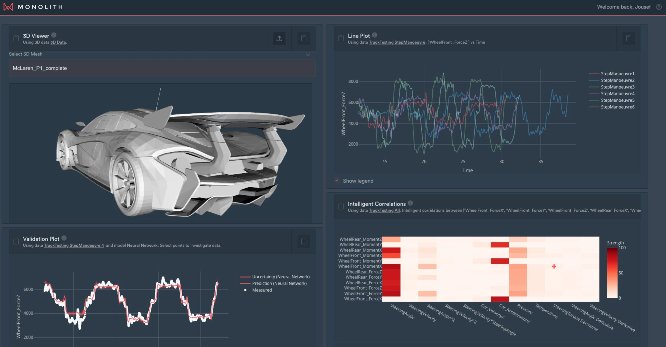Artificial Intelligence Software gains award for innovation in developing car resilience to impacts
Artificial intelligence (AI) software provider, Monolith has been recognised in the Automotive Testing Technology International Awards for the work it has been doing with the BMW Group on crash test software. The company supplies its AI products into the automotive, aerospace and industrial engineering industries and most recently has been helping BMW to analyse crash data for improving crashworthiness of the manufacturer’s products.
Monolith’s intelligent AI platform has had a high degree of success in the BMW Group’s crash testing programme by lowering the engineering teams’ testing time and improving product performance and safety. It was this aspect that was recognised by the award judging panel when awarding the “Crash Test Innovation of the Year” prize.
According to one of the judges on the panel, Monolith’s innovative AI tool was impressive because it enables manufacturers to derive deeper learning in less time, underpinned by their own historic data. Its work with the BMW Group has enabled engineers to efficiently address complex safety challenges much earlier in development. This has enabled a much richer analysis of engineering approaches, which will benefit future programmes.
Design approach
Engineering teams at the BMW Group sought to change a time-intensive, costly approach to crash testing, specifically focusing on procedures and criterion measuring passenger leg injuries, known as the tibia index.
As an alternative, the BMW Group’s engineering personnel made use of the power of Monolith software machine learning capabilities to build self-learning models, utilising their wealth of existing crash data to accurately and swiftly predict forces exerted on the tibia during a range of different crash types. This innovative approach not only reduced the need for physical testing but also enabled the BMW Group’s engineers to optimise crash performance earlier in the vehicle design process, thereby saving time and money on unnecessary iterative design modifications and re-testing.
According to Dr Richard Ahlfeld, CEO and Founder of Monolith, the power of artificial intelligence lies in its ability to facilitate smarter, more efficient workflows, which enable businesses to effect positive change faster.
“The whole team at Monolith is honoured to have had our work with the BMW Group recognised with this prestigious award from Automotive Testing Technology International, and it’s a fitting testament to the incredible potential that exciting AI innovation holds for taking vehicle development to new heights.”
Value of AI
The BMW Group engineers are not alone in seeing the value of introducing AI into their workflows. According to a 2022 Forrester report, 84% of technical decision-makers see significant opportunities with AI and believe they must implement machine learning to maintain a competitive advantage in their industry. Indeed, Monolith AI software is already trusted by engineering teams across numerous industries including automotive and aerospace with such customers as Siemens, Honeywell, BMW and BAE.
By deploying artificial intelligence into the design, prototyping and testing workflow, there are similar benefits to be had to other digital performance evaluation technologies such as simulation and digital twinning. By taking the testing process away from physical prototypes and into the digital domain, a lot of information can be obtained and experience gained to help build prototyping templates to assist future development. When testing is eventually performed on physical prototypes, there is a higher level of confidence that the test criteria will be met without the need for expensive re-work.
- UK manufacturing steps up to COVID-19 crisis - April 2, 2020
- Clustering Innovation - March 12, 2020
- A Global Monitor - March 6, 2020

